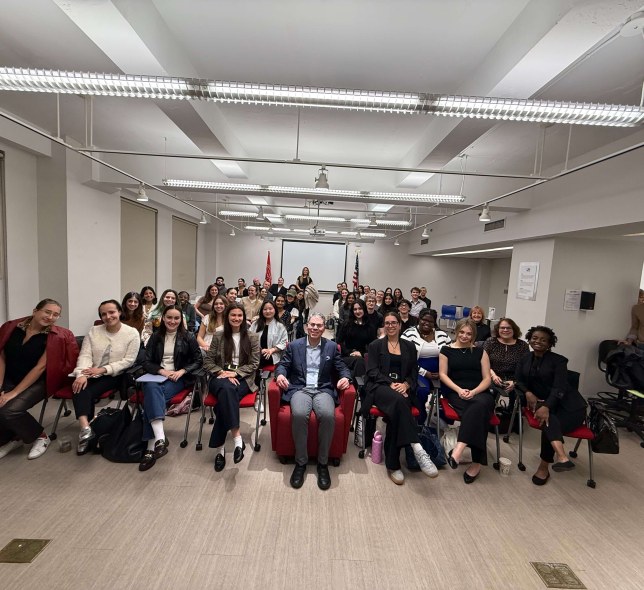Having worked for brands like Calvin Klein, Cole Haan, and Ralph Lauren, Beth Hochberg is a veteran of the fashion supply chain, which has seen highly publicized disruptions in the pandemic-era. As an LIM faculty member, she brings professional lessons into classes like Global Business Management, which is part of the College’s master’s degree program in Global Fashion Supply Chain Management.
Please tell us about your professional background.
I have 18 years of experience in product development, sourcing, and supply chain for Cole Haan, Ralph Lauren, and Calvin Klein, specializing in footwear and accessories. Currently, I am Import Coordinator for Nasco Stone and Tile, where I focus on importing and logistics of Italian and Spanish tiles.
What issues is the fashion supply chain facing? And what do you see as solutions?
Problems include rising raw material costs, as well as conservative buying from retailers unsure about another shutdown. Additionally, there were shutdowns in numerous countries earlier this year, reducing expected inventory even more. Shipping costs are high. There are delays for containers, getting on vessels, and getting out-of-port even after shipments arrive, due to congestion and lack of workers.
As far as solutions, we already see retailers consolidating, nearshoring (transferring operations to nearby countries), and even some onshoring (making operations domestic / local), and I think this will continue. Many nearshore/onshore locations that were left in 2007-2010 will see some of the production come back. The key will be finding available workforce.
How have you adjusted your teaching based on these issues?
Given that there is still much less professional travel, I really try to focus on how to best illustrate the in-person "on ground" techniques that effective logistics require, via virtual meetings. In my work for example, we are now communicating, negotiating, and building a majority of our business relationships through remote technology, whether that be email, videoconference, or phone.
What can a graduate do with LIM’s master’s degree in Global Fashion Supply Chain Management?
Anything and everything! Some of this year's graduating students are in roles as Logistic Specialists, Merchandising and Planning Associates, Product Development, Sourcing, and more.
How can someone working in supply chain have an impact on sustainability?
As the fashion industry and the world collectively implement more sustainable practices, corporations are adding roles and opportunities beyond merely the sourcing of materials and production. Supply Chain jobs now also include sustainable construction/buildings within the organization, investigating cleaner methods of international and domestic transportation, and responsibility for waste management and its impact.
What advice do you have for "holiday shoppers" this year?
For those who can't change their shopping habits, realize that “Cyber Monday” is every day—don't wait for Black Friday, because nothing will be left. If you see it, buy it.
For those looking to be more sustainable and embrace quality over quantity, you may be wrapping a picture of the gift your friend or loved one is going to get. It’s tough changing habits, but if you wait for a product that prioritizes quality over quantity, you’ll reduce production pressure and shipping volume at time when consumerism is highest, and the planet will thank you for that!
Did you know LIM College’s Global Fashion Supply Chain Management degree can now be earned fully online?



